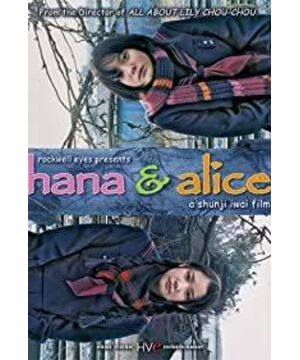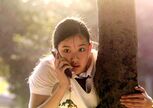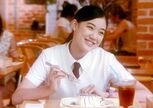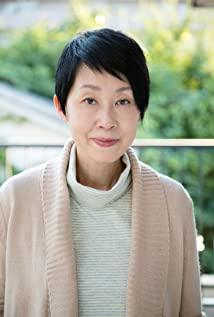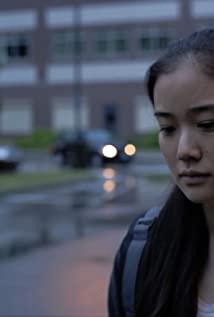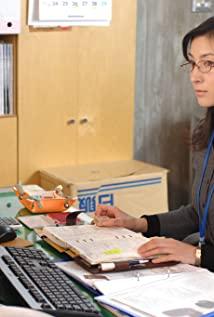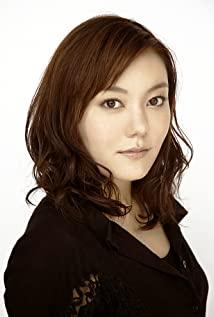I have indescribable admiration and gratitude for Iwai and Iwai's film. What I admire is the layout of the whole movie, and I am grateful that in the movie world that is more and more like to use money and special effects to piece together, there is such a fresh work, just like the spring when the flowers are blooming, standing on the bright side. The feeling of walking in the sun...
I want to explain a few points about this movie that may be confusing to everyone.
(But it's just my own opinion, please forgive me if there are any misunderstandings)
1) What does Miyamoto often read?
What Miyamoto often talks about is actually Japanese [rakugo], which is similar to stand-up comics. One person plays multiple roles. The performers are generally expressionless, but they will make the audience laugh at the end.
Thinking about the average boys' hobbies are nothing more than playing video games, playing ball, etc., and Miyamoto, who has a soft spot for [rakugo], usually looks dull, so it is not difficult to understand why he believes Hana's lies . But in fact Miyamoto is a very thoughtful person, he is always watching Hana and Alice secretly.
2) Why does Alice cry when she sees Miyamoto picking up the Ace of Hearts?
I don't know if anyone agrees with my point of view. I think Alice has an Electra complex!
① First, Alice parents divorced, and her mother is smaller than Alice mental age of a
woman, such as in fast food restaurant, Alice met her mother and her mother's boyfriend, her mother
mother is afraid her boyfriend that she had a daughter , so the first act is to call Alice
[neighbor's daughter Hana], and also always imply Alice to leave quickly.
I'm sure Alice doesn't have to encounter this kind of thing only once or twice. From what she said to her mother at home, she
can know that her mother often makes new boyfriends. Alice, who lacked maternal love,
was quite dependent on her father.
②In the movie, Alice met her father once, and it was her father who celebrated her entering high school.
Her father said that he wanted to see Alice wearing a school uniform, but Alice disdainfully said no, and then her father asked why, and Alice replied: いやらしい (hate, obscene meaning). This conversation also takes place on the
Shinkansen. Alice asked Dad when we could see you again. Dad said it would be later. He would send a message
to Alice. Then Alice asked in surprise when Dad learned to send messages. Her dad
said it was recently, and then Alice said: いやらしい.
In Alice's view, her father is not a father figure, but [a man], even
a lover. Think about it, would an ordinary high school girl be embarrassed to wear a
school uniform in front of her father ? Feeling dirty because dad learned to text? Will you say [I love you] to dad?
Maybe in European and American countries, it is more common for children to say [I love you] to their parents, but Japan is a
more [ambiguous] country than China . This kind of [ambiguous] means that it is not easy to express their original intentions and ambiguous
. And Alice was said to her father in public [I love you], although Mandarin is not
words, but the feeling which is not so simple.
③The places where Alice and Miyamoto went and what they ate were actually the places she and her father went to and what they ate. For example, Alice and Miyamoto went boating together. She said that the hat once fell into the lake, and now it should be at the bottom of the lake. This is not a lie, but she was with her father at the time; and finally because Alice took Miyamoto to eat that The dessert she ate when she and her father met, but this dessert caused Miyamoto's allergies, causing Miyamoto to see through Alice's lies; another example, the three of them went to the beach together, in fact, the restaurant Alice was looking for must have been with her father before I've been there, because later they were playing poker at the beach and the cards were blown away by the wind. Alice picked up the ace of hearts, and Miyamoto also picked up one. Miyamoto thought that Alice liked him and lied to steal him from Hana, but in fact the one that Miyamoto picked up was one of the deck of cards that Alice and her father blew away when they were playing at the beach. (Based on
a conversation between Alice and her dad while walking).
For Alice, the lost and found cards reminded her not only of her father, but also of her own use of Miyamoto's kindness and playing with Miyamoto as her father's stand-in, so she felt sad and cried. .
3) Why is Alice not with Miyamoto?
If the love shown in Iwai's films is full of beauty and helplessness, then the relationship between Alice and Miyamoto is like this. As mentioned earlier, Alice only used Miyamoto as a substitute for her father to accompany her at first, but she also developed some feelings for Miyamoto, but this feeling was not enough for Alice to give up her friendship with Hana. Alice knows that Hana likes Miyamoto, to the point where she can fight with herself for Miyamoto. Hana's father never showed up from beginning to end, so Hana is very likely to live in a single-parent family like Alice, so the two of them understand each other and support each other. Alice understands what it's like to lose love, so she doesn't want Hana to lose love , would rather quit the relationship.
4) Finally, I would like to mention the last ballet, which was not added to complete Iwai's aesthetic style, I think it is Alice's growth. Alice let go of her relationship with Miyamoto, and she realized that there are some things in life that need to be let go, and some things that need to be grasped, so she did not take it seriously in many previous auditions, she just reached [one question and three unknowns] ], but then she knew that if she didn't give her all, she would lose more. As a result, she danced a ballet seriously so that the audience could remember her deeply,
thus gaining unanimous affirmation. Very old-fashioned, this is really the metamorphosis process of a butterfly.
All in all, watching Iwai's movies is like playing a game to pass the test. Only by understanding the pass code can you reach the other side, the other side of the heart.
View more about Hana to Arisu reviews


